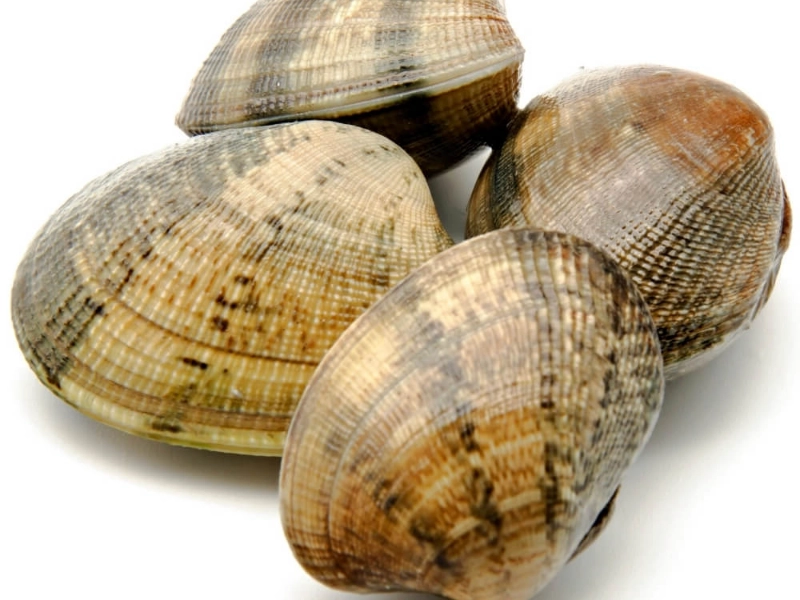Seafoods like prawns, clams, oysters, and mussels can make a delicious addition to a diet that is well-balanced. These beloved seafood dishes are low in fat, high in protein, and rich in beneficial omega-3 fatty acids. The body receives vital vitamins, minerals, and antioxidants from shellfish that help prevent disease. They exclusively include monounsaturated and polyunsaturated fats, and they are low in fat and saturated fat.

 Omega 3 fatty acids, vitamin B-12, and vitamin D are all abundant in shellfish and other seafood. Antioxidants, which fight disease, are abundant in them as well.
In a report released by the Shellfish Association of Great Britain, it is debunked that pregnant women shouldn't eat shellfish since it is high in cholesterol. The report contains a traffic light guide that illustrates the fat, salt, and sugar content of several shellfish varieties. These are similar to the ones found on food packaging.
In the past, doctors used to advise against eating clams, mussels, prawns or crab due to their high cholesterol content. But new studies suggest that these crustaceans might make a delectable addition to a diet low in fat. Docosahexaenoic acid, or DHA, and eicosapentaenoic acid, or EPA, the fatty acids found in these marine organisms, are the explanation behind this; they lower inflammation in the body. They support brain growth as well. These nutrients are particularly crucial for young children, expectant and nursing mothers, and elderly persons as they can help close nutritional deficits.
Omega 3 fatty acids, vitamin B-12, and vitamin D are all abundant in shellfish and other seafood. Antioxidants, which fight disease, are abundant in them as well.
In a report released by the Shellfish Association of Great Britain, it is debunked that pregnant women shouldn't eat shellfish since it is high in cholesterol. The report contains a traffic light guide that illustrates the fat, salt, and sugar content of several shellfish varieties. These are similar to the ones found on food packaging.
In the past, doctors used to advise against eating clams, mussels, prawns or crab due to their high cholesterol content. But new studies suggest that these crustaceans might make a delectable addition to a diet low in fat. Docosahexaenoic acid, or DHA, and eicosapentaenoic acid, or EPA, the fatty acids found in these marine organisms, are the explanation behind this; they lower inflammation in the body. They support brain growth as well. These nutrients are particularly crucial for young children, expectant and nursing mothers, and elderly persons as they can help close nutritional deficits.
 A perfect combination of vitamins, minerals, and heart-healthy omega-3 fatty acids can be found in seafood. It may assist in enhancing general health and bridge nutritional gaps in a diet. B vitamins, zinc, copper, and iron can all be found in seafood. It also contains docosahexaenoic acid (DHA) and eicosapentaenic acid (EPA), two omega-3 fatty acids.
Consuming seafood and shellfish has been associated in studies with a decreased incidence of heart disease. It is thought that the fatty acids found in fish and shellfish lessen inflammation and the accumulation of fat in arteries.
The FDA suggests eating two portions of fish low in mercury per week. Select shellfish that comes from fisheries that are sustainable. To reduce the risk of contracting a foodborne illness, prepare and chill raw seafood according to safe handling recommendations.
A perfect combination of vitamins, minerals, and heart-healthy omega-3 fatty acids can be found in seafood. It may assist in enhancing general health and bridge nutritional gaps in a diet. B vitamins, zinc, copper, and iron can all be found in seafood. It also contains docosahexaenoic acid (DHA) and eicosapentaenic acid (EPA), two omega-3 fatty acids.
Consuming seafood and shellfish has been associated in studies with a decreased incidence of heart disease. It is thought that the fatty acids found in fish and shellfish lessen inflammation and the accumulation of fat in arteries.
The FDA suggests eating two portions of fish low in mercury per week. Select shellfish that comes from fisheries that are sustainable. To reduce the risk of contracting a foodborne illness, prepare and chill raw seafood according to safe handling recommendations.
 Seafood is a high-protein, low-calorie item that can support good weight management. It also contains omega-3 fatty acids, which help improve blood pressure and cholesterol and lower your risk of heart disease.
Vital vitamins and minerals found in seafood include vitamin D, iodine, zinc, selenium, and iron. Getting these nutrients is simple if you eat fish a few times a week.
Fish and shellfish are part of a well-balanced diet that can help maintain a healthy weight, support heart health, and support the normal growth and development of children. But consuming fish and shellfish too frequently can raise your risk of allergic responses or foodborne illnesses. To appreciate the delicious flavour and healthy nutrients of this adaptable cuisine, learn safe methods for purchasing, storing, and preparing shellfish.
Seafood is a high-protein, low-calorie item that can support good weight management. It also contains omega-3 fatty acids, which help improve blood pressure and cholesterol and lower your risk of heart disease.
Vital vitamins and minerals found in seafood include vitamin D, iodine, zinc, selenium, and iron. Getting these nutrients is simple if you eat fish a few times a week.
Fish and shellfish are part of a well-balanced diet that can help maintain a healthy weight, support heart health, and support the normal growth and development of children. But consuming fish and shellfish too frequently can raise your risk of allergic responses or foodborne illnesses. To appreciate the delicious flavour and healthy nutrients of this adaptable cuisine, learn safe methods for purchasing, storing, and preparing shellfish.